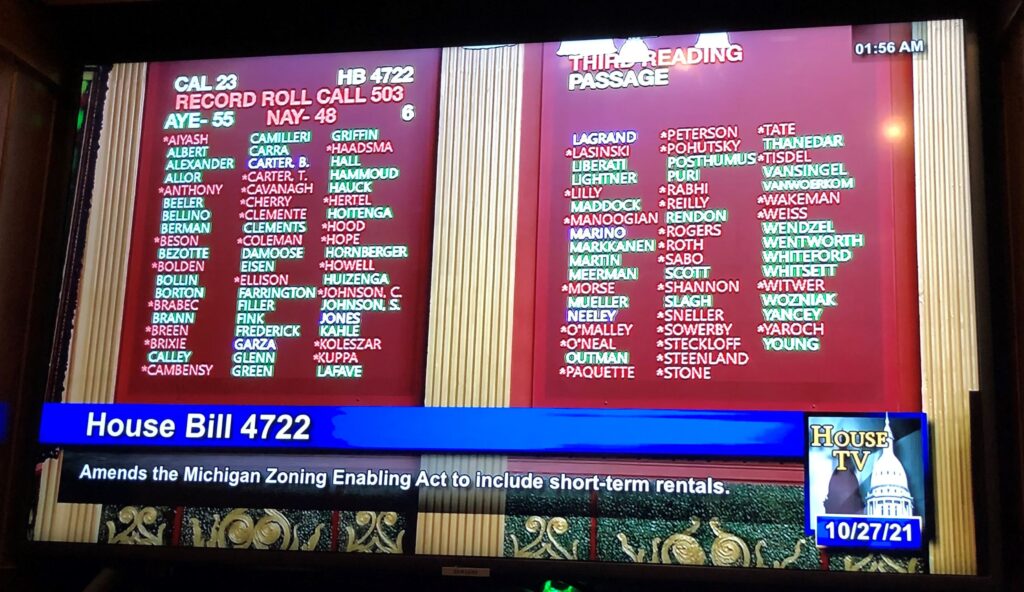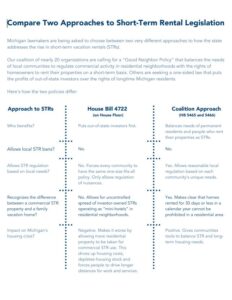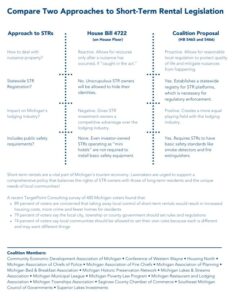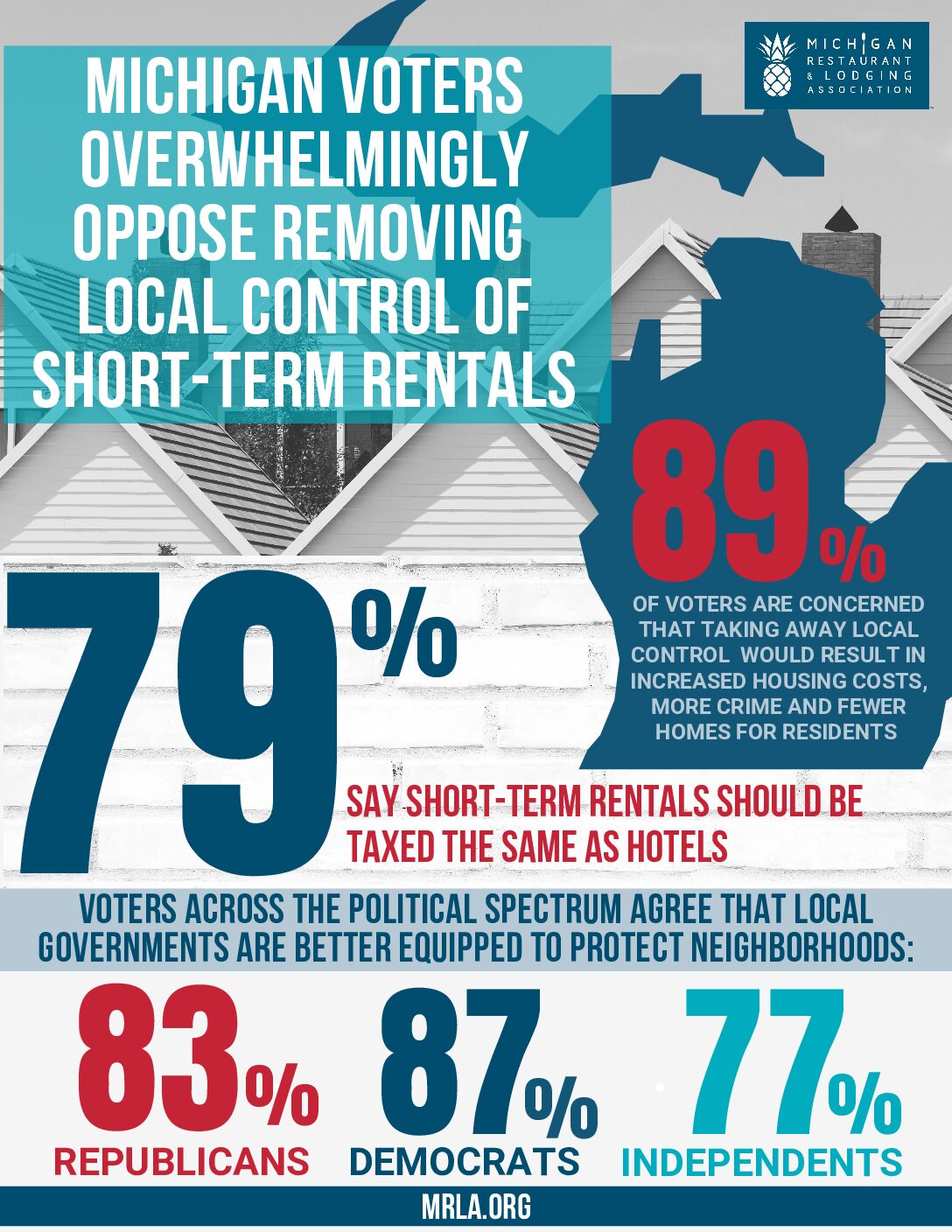*Michigan Attorney General Issues New Opinion Regarding Virtual Public Meetings Under the Michigan Open Meetings Act and Americans with Disabilities Act
On February 4, 2022, the Michigan Attorney General, Dana Nessel, issued an Opinion stating that restrictions for virtual public meetings provided under the Michigan Open Meetings Act are preempted to the extent the restrictions prevent a public body from providing reasonable accommodations under the Americans with Disabilities Act.
Open Meetings Act
Traditionally, the Michigan Open Meetings Act, MCL 15.261 et seq., has authorized public officials to attend meetings virtually to accommodate the officials’ absence due to military duty. However, this exception was extended for a limited period of time, in response to the COVID-19 pandemic, to allow public officials to attend meetings virtually:
[To accommodate] military duty, a medical condition, or a statewide or local state of emergency or state of disaster declared pursuant to law or charter or local ordinance by the governor or a local official, governing body, or chief administrative officer that would risk the personal health or safety of members of the public or the public body if the meeting were held in person. MCL 15.263.
This extension expired on December 31, 2021. MCL 15.263(1)(c). Therefore, as of January 1, 2022, the Open Meetings Act only authorizes public officials to attend meetings virtually to accommodate the officials’ absence due to military duty. Id. The act no longer authorizes officials to attend public meetings virtually for a medical condition or a state of emergency / disaster. Id.
The Opinion acknowledges this restriction. However, the Opinion notes that accommodations for virtual attendance may be required for certain individuals under the Americans with Disabilities Act.
Americans with Disabilities Act
Under Title II of the Americans with Disabilities Act, “no qualified individual with a disability shall, by reason of such disability, be excluded from participation in or be denied the benefits of the services, programs, or activities of a public entity, or be subjected to discrimination by any such entity.” 42 USC 12132.
The Opinion interprets this language to require “state and local boards and commissions to provide reasonable accommodations, which could include an option to participate virtually, to qualified individuals with a disability who request an accommodation in order to fully participate as a board or commission member or as a member of the general public. . .” OAG 7318 (2022) (emphasis added).1
To determine whether an individual qualifies for an accommodation under the Americans with Disabilities Act, the following requirements must be met:
- the individual must have a qualifying disability that would affect the individual’s ability to physically attend the public meeting; and
- the requested accommodation must be reasonable.
This is a fact-specific inquiry based on the individual’s disability and the public body’s resources, and it must be determined on a case-by-case basis.
Guidance for Compliance
The Opinion issued by the Attorney General is binding on state agencies but is non-binding on local municipalities and other public bodies. However, the Opinion is regarded as persuasive legal authority in court and therefore should be considered by public bodies when they receive a request for virtual meeting attendance as an ADA accommodation.
To ensure compliance under the Open Meetings Act and the Americans with Disabilities Act, public bodies should evaluate requests for accommodations using the following procedure:
- Does the individual have a qualifying disability?
A qualifying disability includes a physical or mental impairment that substantially limits one or more of the major life activities of such individual. 42 USC 12102 (1)(A).
When virtual participation at public meetings is requested as an accommodation, the disability must affect the individual’s ability to physically attend the meeting.
2. Is the request for accommodation reasonable?
A request for accommodation is reasonable unless it requires a fundamental alteration in the nature of a program or imposes undue financial and administrative burdens. Smith & Lee Assoc, Inc v City of Taylor, 102 F3d 781 (CA 6, 1996).
This is also a fact-specific inquiry. Factors to consider when determining whether providing remote access to a public meeting is reasonable include:
-
- Has the public body provided remote access to its public meetings in the past?
- Does the public body have sufficient resources and knowledge to provide remote access to its public meeting?
Generally, a request to provide remote access to a public meeting would be considered a reasonable request in light of many public bodies’ experience and familiarity with the process during the COVID-19 pandemic. However, a request for a fully virtual option is more likely to be viewed as a fundamental alteration of a board’s or commission’s services, and therefore not required.
The public body should consider these factors if an individual has a qualifying disability and requests a reasonable accommodation to attend the public meeting virtually. We recommend the public body use caution when making this determination – especially if the individual is a member of the public body, as their in-person attendance is generally required under the Open Meetings Act.
*Information provided by FosterSwift Municipal Law News and shared with permission.
The League is sharing this information as a reference, but encourages you to work with your municipal legal representation for further clarification.
Jennifer Rigterink is a legislative associate for the League handling economic development, land use and municipal services issues. She can be reached at jrigterink@mml.org or 517-908-0305.




